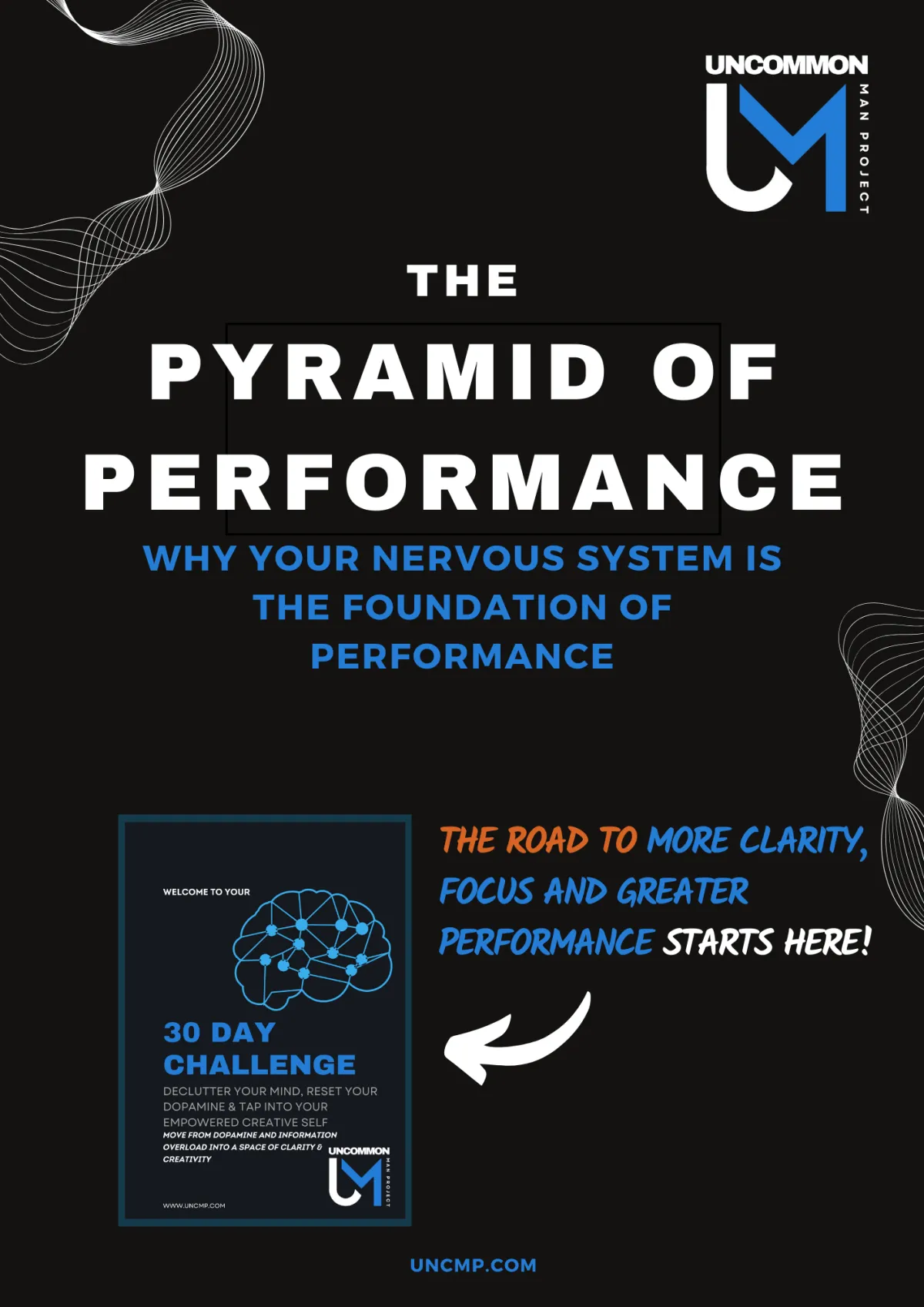Blog
Articles & Free Resources
"Real knowledge is to know the extent of one's ignorance."
-Mary Catherine Bateson

The High-Performance Trap: Managing Stress and Burnout for Men
Introduction
Men today are under immense pressure to perform at high levels, both at work and in life. Understanding the relationship between stress, burnout, trauma, and the body's physiological response is crucial for those who feel they’re running on empty but can’t afford to stop.
The Role of the Nervous Systems
Sympathetic Nervous System
The sympathetic nervous system controls the body's "fight or flight" response. When a stressor is perceived, stress hormones like cortisol and adrenaline are released, increasing heart rate, blood pressure, and respiration, preparing the body for action. For men constantly on the go, this system is often in overdrive.
Parasympathetic Nervous System
The parasympathetic nervous system is responsible for the body's "rest and digest" response, promoting relaxation and recovery. However, chronic stress and trauma can dysregulate this system, making relaxation difficult, leaving you feeling perpetually exhausted.
The Impact of Chronic Stress and Burnout
Chronic activation of the sympathetic nervous system leads to burnout and exhaustion. The body struggles to return to a state of relaxation, leading to long-term physical and mental health issues if not addressed.
My Personal Journey
Experiencing Burnout
Stress, when left unchecked, leads to burnout. My journey has been about deepening self-care and understanding my body, emotions, and mind—a struggle that doesn’t come naturally to many men. During the pandemic, stress levels have skyrocketed, and many are fighting for some form of security.
Observations on Stress and Burnout
High levels of stress often stem from earlier traumas, driving the need to prove oneself. These inner tensions lead to burnout, manifesting as stress, overwhelm, and anxieties, which disrupt your business growth and personal fulfillment.
Recognizing and Addressing Burnout
The Stress-Burnout Cycle
Stress is cyclical and needs to be completed. Think of it like being stalked by a lion: you can either run (flight), get ready to fight (fight), stand still (freeze), or try to appease (faun). In your job, this translates to avoiding tasks, procrastinating, or feeling overwhelmed.
Components of Burnout
Burnout involves emotional exhaustion, depersonalization, and a decreased sense of accomplishment. Recognizing these signs helps in taking actionable steps to break free from the stress cycle.
Practical Tools for Managing Stress and Burnout
Exercises to Complete the Stress Cycle
Exercise : Stand up, take a deep breath, tense all your muscles for 20 seconds, then shake it out with a loud exhale. Repeat this 5 times to help your nervous system regulate.
Additional Tips
Eliminate stress-inducing foods like caffeine, sugar, and nicotine. Integrate stress-neutralizing foods like chamomile tea, blueberries, matcha powder, and CBD products.
The Importance of Mindfulness
Cultivating a state of mind where external circumstances affect you less can significantly reduce stress. Shifting your perspective inward increases energy, focus, and opportunities.
Additional Resources
Books and Articles:
"Burnout: The Secret to Unlocking the Stress Cycle" by Emily Nagoski, PhD
Podcasts and 7 Day Burnout Reset:
Conclusion
Understanding your body and specific needs is key to managing stress and burnout. Recognition of past and present patterns is crucial for informed decision-making. Balance can be achieved through a deeper connection with oneself.
Men, it’s time to stop just enduring and start thriving. Your health, happiness, and performance depend on it.
All the best,
Nick
Start YOUR Challenge!



